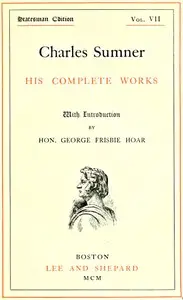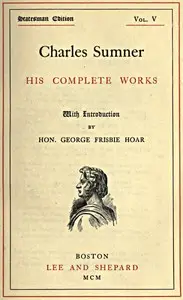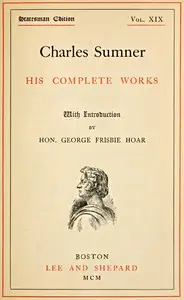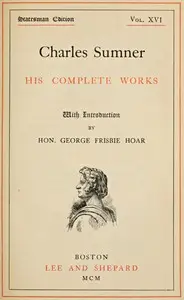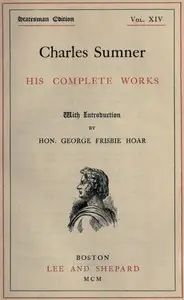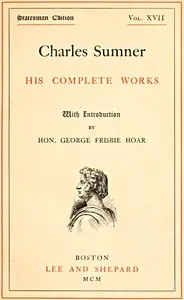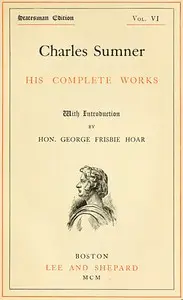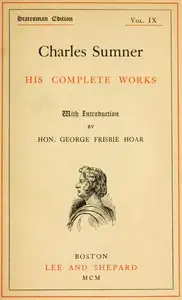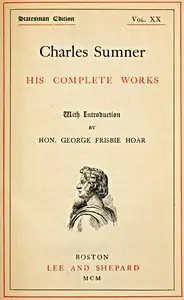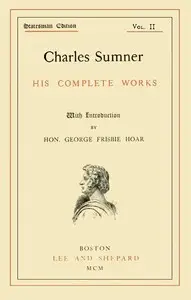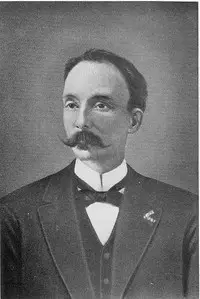"Charles Sumner: his complete works, volume 18 (of 20)" by Charles Sumner is a compilation of speeches and writings centered on civil rights and fairness, capturing the spirit of the late 1800s. The book showcases Sumner's compelling speeches as a U.S. Senator, tackling important issues during the Reconstruction, particularly the rights of African Americans. His arguments champion fairness, highlighting the necessity of a national law to safeguard human rights from injustices at the state level. Covering the years 1870 and 1871, speeches include critical discussions such as Mississippi's admission into the Senate, along with debates on the first African American senator and the Fifteenth Amendment. Sumner passionately stresses the importance of human rights over old-fashioned ideas, specifically highlighting the need for equality after the Civil War, advocating for laws that protect all citizens, and questioning the social and political ideas of his time.
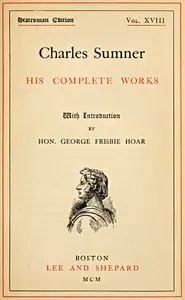
Charles Sumner: his complete works, volume 18 (of 20)
By Charles Sumner
Journey back to the Reconstruction era as a senator fiercely advocates for equality and justice, battling for the rights of all citizens during a deeply divided nation.
Summary
About the AuthorCharles Sumner was an American lawyer, politician, and statesman who represented Massachusetts in the United States Senate from 1851 until his death in 1874. Before and during the American Civil War, he was a leading American advocate for the abolition of slavery. He chaired the Senate Foreign Relations Committee from 1861 to 1871, until he lost the position following a dispute with President Ulysses S. Grant over the attempted annexation of Santo Domingo. After breaking with Grant, he joined the Liberal Republican Party, spending his final two years in the Senate alienated from his party. Sumner had a controversial and divisive legacy for many years after his death, but in recent decades, his historical reputation has improved in recognition of his early support for racial equality.
Charles Sumner was an American lawyer, politician, and statesman who represented Massachusetts in the United States Senate from 1851 until his death in 1874. Before and during the American Civil War, he was a leading American advocate for the abolition of slavery. He chaired the Senate Foreign Relations Committee from 1861 to 1871, until he lost the position following a dispute with President Ulysses S. Grant over the attempted annexation of Santo Domingo. After breaking with Grant, he joined the Liberal Republican Party, spending his final two years in the Senate alienated from his party. Sumner had a controversial and divisive legacy for many years after his death, but in recent decades, his historical reputation has improved in recognition of his early support for racial equality.

